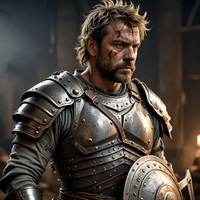So many people hate secret rolls. So many people feel like they remove agency from them.
But that’s what the dice do. They’re agency-revoking machines.
One reason people may dislike secret rolls is you can’t be sure the GM isn’t just lying to you. Though if that’s the case, you should probably find a GM you trust.
On the other hand, I prefer systems where dice aren’t the sole arbiter. I want to be able to spend a fate point or inspiration, or succeed at a cost.
Question. I’ve never DM’d obviously, but outside of combat I assumed the success threshold was something the DM made up on the spot based on how hard the task/situation should be and does not explicitly communicate that to the players. Is that what happens?
I would rather know my roll so I can imagine for myself how much of my character’s capability went into the attempt. Failing a check after rolling a 2 vs rolling a 19 affects how I play from then on, similar to how I think it would affect my character psychologically. If you try to climb a wall and fail without knowing the roll, would you try again? I hope that made sense.
Short version: No, not every game has target numbers.
Long version: within the d&d context, DCs set by the DM have only existed for about half of d&d’s history, starting with 3e. Before that, “skill checks” worked in a few different ways including percentile dice compared to level, rolling under the most relevant ability score, or just rolling a d6. Outside the d&d context, my gut says that arbitrary target numbers are less common than fixed ones or ranges. In my experience, they’re faster and simpler, too.



